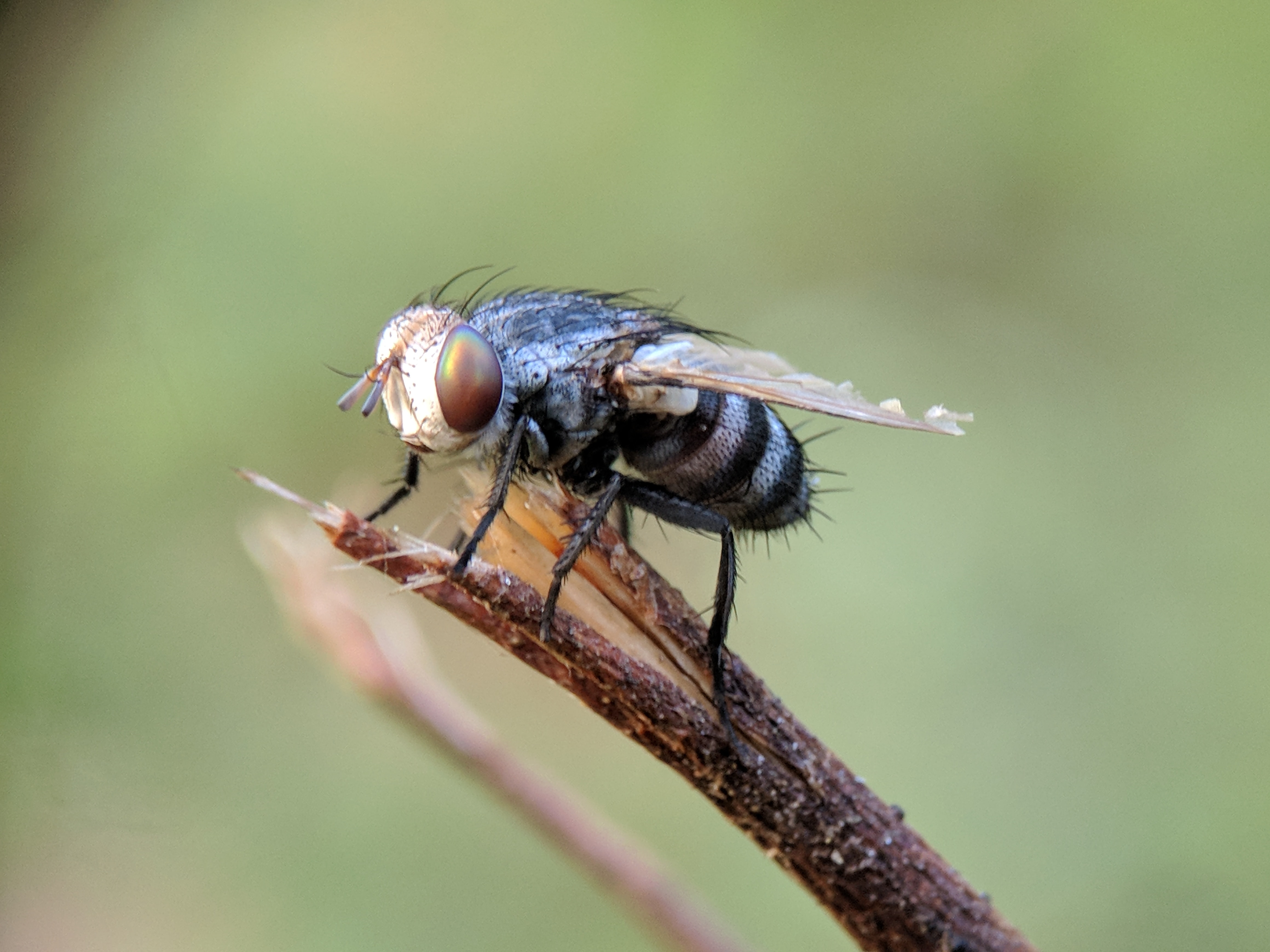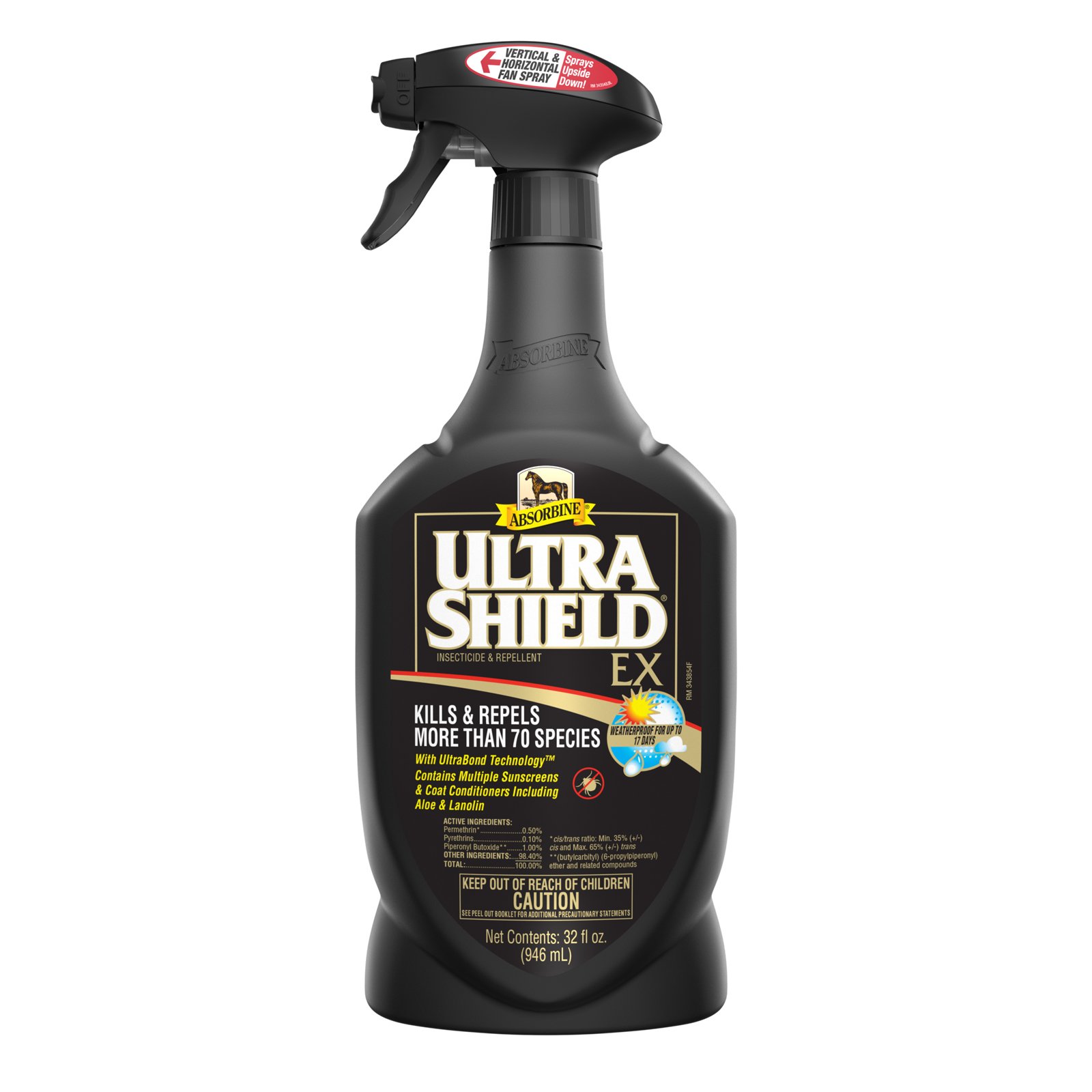Summer Fly Control
Summer Fly Control
 The summer months bring out the worst of the flies in barns, many species of which are hard to control. Since not ever insecticide is effective on every fly, it is important to understand which fly you are combating. The most common fly types in barns are stable flies and house flies. Stable flies inflict a painful bite to both humans and horses, quickly biting and then going to rest and digest. House flies, however, are nonbiting but are often an annoyance to horses as they gather near their eyes. Horse flies and deer flies are common in this area, and are large, blood-feasting flies that bite and then fly away for three to four days until another meal is required. These types of flies are harder to control that stable and house flies.
The summer months bring out the worst of the flies in barns, many species of which are hard to control. Since not ever insecticide is effective on every fly, it is important to understand which fly you are combating. The most common fly types in barns are stable flies and house flies. Stable flies inflict a painful bite to both humans and horses, quickly biting and then going to rest and digest. House flies, however, are nonbiting but are often an annoyance to horses as they gather near their eyes. Horse flies and deer flies are common in this area, and are large, blood-feasting flies that bite and then fly away for three to four days until another meal is required. These types of flies are harder to control that stable and house flies.
Sanitation is the first defense in controlling fly populations, as they prefer damp, muddy areas. Not dealing with manure, soiled bedding, and muddy areas in a timely manner contributes to fly populations. Once bedding and manure is removed from a stall, it should be placed at least 200 feet from the stable to prevent the fly larvae in the pile from hatching and returning to the stalls. The average lifecycle of a fly is 14 days, which means that fly-prone areas should be addressed weekly to disrupt the lifecycle.
The Essex County Co-Op sells a variety of implements that can help you tackle your fly problems. Fly Bait Traps are a common way to trap and kill flies, however, they need to be positioned far from the barn to distract flies and lure them from the stables. An example of this would be the Starbar Captivator Fly Trap, which is easily hung and comes with the trap and bait. Fly traps, such as the Starbar Bite-Free Stable Fly Trap, offer a sticky surface that attracts and traps flies, and do not require powdered bait. Providing your horse with fly sheets and fly masks are helpful in reducing the number of landing surfaces for flies. These garments are most effective when combined with forced air circulation. Premises sprays, such as the Durvet Dairy Bomb 55Z, are an effective way to kill insects, as they provide quick knockdown, often through the use of permethrins. Additionally, there are feed-through fly control products, such as SimpliFly by Farnam, which prevent larvae in the droppings from maturing. Lastly, topical insecticides, more commonly known as fly sprays, can be used. While fly sprays need to be used at more frequent intervals than the other methods, they provide some additional benefit, such as sunscreen or coat conditioners. A popular fly spraythat the Co-Op sells is Absorbine Ultrashield Ex, which kills more than 70 species, and contains multiple sunscreens and coat conditioners.
such as the Durvet Dairy Bomb 55Z, are an effective way to kill insects, as they provide quick knockdown, often through the use of permethrins. Additionally, there are feed-through fly control products, such as SimpliFly by Farnam, which prevent larvae in the droppings from maturing. Lastly, topical insecticides, more commonly known as fly sprays, can be used. While fly sprays need to be used at more frequent intervals than the other methods, they provide some additional benefit, such as sunscreen or coat conditioners. A popular fly spraythat the Co-Op sells is Absorbine Ultrashield Ex, which kills more than 70 species, and contains multiple sunscreens and coat conditioners.
Whatever your fly troubles may be, come visit the Essex County Co-Op for the best advice and solutions!
